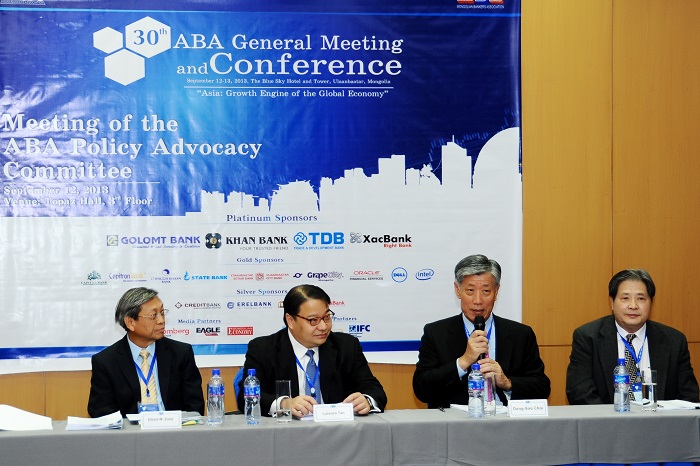Empowering Migrant Workers and Greater Financial Inclusion through Remittances
- There are more than 215 million international migrant workers in the world. Remittance or the money sent home by migrants constitutes the second largest financial inflow for many developing countries, exceeding international aid. In 2010, worldwide remittance flows are estimated to have exceeded US$ 440 billion. From that amount, developing countries received US$ 325 billion, which represents an increase of 6 percent from 2009 level. The true size, including unrecorded flows through formal and informal channels, is believed to be significantly larger. Recorded remittance in 2009 were nearly three times the amount of official aid and almost as large as foreign direct investments (FDI) flows to developing countries. In many developing countries the volume of remittance constitutes more than 10 percent of gross domestic product (GDP).
- Remittances lead to increased investments in health, education and small businesses. At the same time, the loss of skills associated with migration can hamper development and delivery of basic services in sending countries. The diaspora of developing countries can be a source of capital, trade and investment, knowledge, and technology transfers. Substantial part of the migrant population and their dependents still remain unbanked despite expansion of financial institutions and development and provision of financial services.
- Financial inclusion of the sector is pivotal since it is reported that all migrant workers put together constitute the fifth most populous country in the world. Migration for work is now more widely distributed across more countries hence today the top 10 countries of destinations receive a smaller share of all migrants than in year 2000. The six Gulf Cooperation Council countries (Bahrain, Kuwait, Oman, Qatar, Saudi Arabia and the United Arab Emirates) have seen a significant increase in migrant flows in the past few years, mostly from South Asia and East Asia. Majority of migrants are the rural poor of countries that are below the poverty line. The volume of migration between developing countries is larger than migration to high income countries belonging to Organization of Economic Co-operation and Development (OECD). High income non-OECD countries such as the Gulf countries are also major destinations for migrants from the developing countries.
- Devising financial products and services to cater to the specialized needs of the migrant workers and their dependents is increasingly explored. This is due to the fact that the segment has become a lucrative market in terms of money transfers, savings, lending, insurance and other commission based financial products. Despite the technological development and processes adopted by the Banks, informal channels dominate the global money transfers particularly due to ease of transaction, easy access, lower documentation, protocols and lower transaction costs. Thus, use of informal channels proves a loss to the Banking sector and subsequent economic development.
 Informal channels do not facilitate savings, lending and other related financial services or the much required financial education and entrepreneurship skills development by the segment. As such, the money remitted is purely used for consumption, completely ignoring savings, asset building and investments for future, thus leaving the migrant workers and their dependents in the never ending vicious cycle of poverty and indebtedness. It is apparent that the volume of illegal transactions as opposed to legally channeled transactions is significantly large. These illegal transactions have no or minimal contribution to the economy of a country, its development and way forward since there is no record or track of the transactions that take place. Hence, measures should be taken to reduce or rather eradicate these illegal transactions to bring about transparency and economic benefits.
Informal channels do not facilitate savings, lending and other related financial services or the much required financial education and entrepreneurship skills development by the segment. As such, the money remitted is purely used for consumption, completely ignoring savings, asset building and investments for future, thus leaving the migrant workers and their dependents in the never ending vicious cycle of poverty and indebtedness. It is apparent that the volume of illegal transactions as opposed to legally channeled transactions is significantly large. These illegal transactions have no or minimal contribution to the economy of a country, its development and way forward since there is no record or track of the transactions that take place. Hence, measures should be taken to reduce or rather eradicate these illegal transactions to bring about transparency and economic benefits.
- The Commercial Banks have a major role to play in identifying specific needs of the segment and devising products and services to meet the needs on the basis of availability, accessibility, affordability and attractiveness. Migrant worker remittances should be facilitated, particularly in the respective countries where migrant workers are located given the vast potential. Furthermore, the track record of the remittance receipts by dependents and their income should be made available to facilitate financial services required by them. Promoting access to safe, fast, easy money transfers, access to remittance in the rural areas, linking remittances to rural financial services and products, promoting active community engagement in economic activity, financial inclusion solutions to eradicate marginalization, developing innovative and productive rural investment opportunities for migrants and community based organization are several aspects that needs critical and immediate attention for the betterment of the migrants and their dependents.
- At present, the Commercial Banks are more competent to facilitate the segment of migrant workers and their dependents since all parties, the sender, the facilitator and the receiver all have access to technology based transactions. Use of mobile based, point of sale (POS), and agent based banking solutions allow provision of services for more people at more places. Moreover, technology based solutions lower transaction costs. Thereby, allowing the Commercial Banks to serve this marginalized segment at a competitive platform. Over 400 million migrant workers transfer nearly US$ 400 billion annually. This represents huge potential for the Commercial Banks to extend financial inclusion to an untapped segment of the market and in turn benefit their bottom line whilst, nurturing the next generation of customers, thereby enriching and empowering the financial independence of the migrant workers and the poor rural households.
Prepared by:
Chandula Abeywickrema
Team Leader for Financial Inclusion
ABA Policy Advocacy Committee
12 November 2013, Manila

